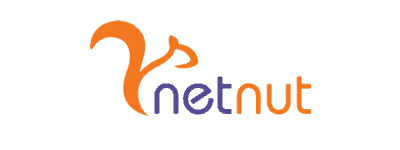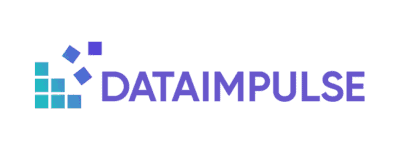The Best Proxies for Web Scraping in 2026
Web scraping gets a whole lot easier when your proxies actually pull their weight. Choosing the best web scraping proxy can make or break a project. Some slow down under pressure, some drown you in CAPTCHAs, and only a few stay steady when the workload ramps up. To sort the contenders from the pretenders, we put the most popular providers.
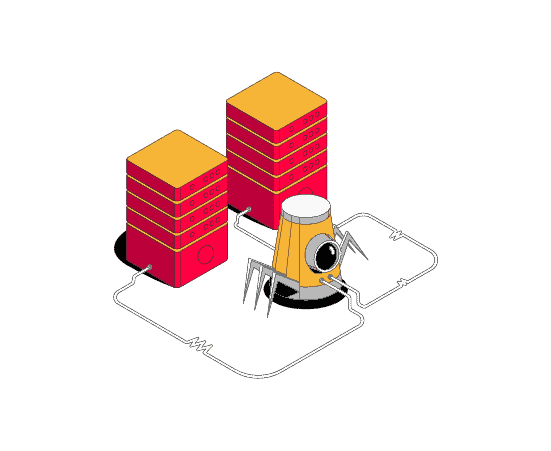
Best Web Scraping Proxy Providers – Quick Summary:

1. Decodo (formerly Smartproxy) – the best overall proxies for scraping.

2. Oxylabs – best premium residential proxy provider.

3. SOAX – rotating proxies with flexible filtering options.

4. NetNut – rotating proxies for large-scale use.

5. Webshare – affordable and highly customizable plans.

6. DataImpulse – low-cost rotating proxies with non-expiring traffic.

7. Rayobyte – good datacenter proxies for a wide range of customers.

8. Infatica – scraping proxies with unlimited threads.

9. IPRoyal – flexible proxies with proper user experience.
Strong options we haven’t tested recently:

10. Bright Data – versatile proxies for any needs.
Why These Web Scraping Proxies Are the Best
What Were the Criteria for the Best Proxy Service?
They Are Less Likely to Get Blocked When Data Scraping
First, when you want to use proxies for web scraping, you need to have a large base of unabused IP addresses. They need to hide your IP and not give away that you are using a proxy to access and scrape data. So, the best web scraping proxy network needs to have:
- Anonymous proxies that do not reveal themselves as proxies.
- Residential proxies that are extremely hard to detect because they look just like average users. We recommend to read more about the best residential proxy providers.
Every provider in this list provides residential proxies that route scraping traffic anonymously. That means these proxy providers have the lowest possibility of being blocked.
They Let You Access Local Data
Next, you often need to scrape local data. In many countries, you can only access it with local IP addresses. These proxy providers let you target local proxies and access data in numerous countries or cities.
The only caveat – some proxy providers make it very expensive and difficult to get geographically precise proxies. We ranked providers that have the least hassle when you just want to use a local IP.
They Have Good Customer Service
Proxy setup and use can be technically challenging. The best proxy service will be easy to set up for any scraper. Proxy providers must have quick and professional customer support. We also evaluate whether providers have instructions for common tools.
How to Choose a Proxy for Web Scraping
When you are choosing a web scraping proxy server, you should first know what tool you will be using. Do you need proxies for ParseHub or Selenium? You should check whether the provider gives precise technical documentation for proxy setup with your tool.
If you wrote your own scraper that needs middleware or cannot use user:pass authentication, check if the provider lets you use any other alternatives. Top providers in this list allow scrapers to use proxies in various ways via extensions or whitelisted IP addresses.
Next, check whether the country or location you will be scraping is available. Again, the top providers in this list have almost any location on the planet, but others mostly focus on US proxies, which limits scraping capability.
You should always contact the provider and ask their support team about supporting your web scraper. Note which providers give you good technical consultations, because that means they have qualified people behind the wheel.
Why You Do Not Need Proxy Lists for Scraping
In the old scraping days, you would have a proxy list to burn through. Nowadays, scrapers can simply use a backconnect proxy network. It handles the listing of IP addresses, checks them in advance, and then supplies you with a good proxy connection.
This approach makes sense when these networks have millions of IP addresses with thousands of proxies going up and down every second. As a result, you no longer need to use proxy lists for scraping, so it’s a win-win situation.
Most web scrapers that need proxy lists should be able to use backconnect connections to scrape with proxies.
Tips for Scraping with Proxies
Web scraping is not just about having an anonymous residential rotating proxy network. As websites try to lock down information and track users, there are a lot more methods that identify a client in addition to IP addresses. Here are some tips you should keep in mind before you set up a scraper with expensive proxies.
User Agents Are as Important for Scraping as Proxies
Every connection through a browser sends the server a unique user agent. User agents have a set of information about the device: its OS, browser signature, device type, etc.
When websites combine user agents, IP addresses and other data about a user, it is called device fingerprinting. If you change IPs but your data scraper always leaves the same fingerprint, your scrape will be detected and you might get into a honeypot.
How Not to Get Blocked When Scraping with a Proxy
Use a large list of user agents and device signatures with your scraper. You should also make sure that your crawler is capable of generating cookies from known websites: make it visit Facebook or eBay before scraping Amazon.
And never use direct links. Mimic real users that will use the site search, come to the site from search engines, wander through pages. This does burn a bit of traffic, but it makes scraping safer and less likely to be detected.
Scraping a Particular Site?
We have tested proxy providers for various target websites and used hundreds of concurrent connections and measured their speed and success rate. Proxyway made sure these are the best scraping proxies for those sites. To find out more, see our lists for:
- Best Proxies for Amazon Scraping
- Best Proxies for Google Scraping
- Best Proxies for Social Media Scraping
The Best Proxy for Web Scrapers Providers for 2025
1. Decodo (ex Smartproxy)
The best overall proxies for scraping.

Get 35% off all proxies.
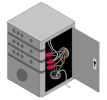
Datacenter proxies
500K IPs
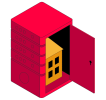
Residential proxies
115M IPs
- Locations: global (residential); ~18 countries (datacenter)
- Rotation: every request, 1min-24h (residential)
- Support: award-winning 24/7 support via chat or email
- Extras: API, browser extension, extensive documentation
- ISP & Mobile proxies available
- Free trial: 3-day trial available, 14-day money-back option
- Pricing starts from:
– Residential: $3.5 for 1 GB.
– Datacenter: $3.5 for 100 IPs ($0.035/IP) or $6 for 10 GB ($0.6/GB)
Decodo is one of those providers that covers most of what matters for scraping. Its residential pool is huge and spread through a wide range of countries, which gives you enough diversity to avoid pattern detection.
The performance is solid. You get stable connection rates and low latency without having to babysit stalled requests. In our tests, residential proxies maintained a 99.95% success rate across hundreds of thousands of requests. If you decide to choose datacenter proxies, Decodo sits in a sweet spot between price and dependability. The IPs are not as broadly distributed as the residential pool, but the speed is there, and the shared plans are affordable.
Beyond technical performance, Decodo shines in user experience. It offers thorough documentation, intuitive proxy management tools such as a browser extension, and a renowned 24/7 customer support.
Read the Decodo review for more information and performance tests.
2. Oxylabs
Best premium residential proxy provider.
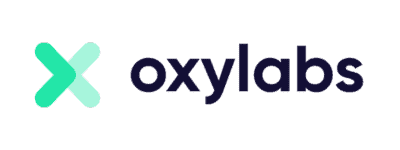

Datacenter proxies
2M IPs

Residential proxies
175M IPs
- Locations: global (residential), up to 188 countries (datacenter)
- Rotation: every request, 1min-24h (residential)
- Support: 24/7 via live chat, dedicated account manager
- Extras: API, browser extension, extensive documentation
- ISP & Mobile proxies available
- Free trial: 7-day trial for businesses, 3-day refund for individuals
- Pricing starts from:
– Residential: $4 for 1 GB
– Datacenter: $11.80 for 20 GB ($0.59/GB)
Oxylabs is one of the heavyweights of the proxy market, focusing on medium-sized to enterprise clients. The company runs some of the largest residential and datacenter pools available, with wide global coverage and enough depth to handle high scale scraping without hurdles.
Performance is where Oxylabs earns its premium label. Success rates, stability, and speed consistently rank near the top in our proxy market reports. Its residential proxies can reach success rates around 99.95 percent on demanding workloads. If you are scraping hard targets or need guaranteed throughput during peak hours, this kind of consistency matters.
The service layer is equally strong. You get polished tooling, clear documentation, and, for business plans, a dedicated account manager who can actually solve problems rather than redirect you in circles.
Read the Oxylabs review for more information and performance tests.
3. SOAX
Rotating proxies with flexible filtering options.
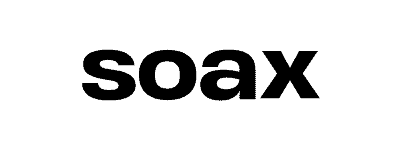
Use the code PROXYWAY35% to get 35% off.

Datacenter proxies
Not specified

Residential proxies
155M IPs
- Locations: global (residential); 6 countries (datacenter)
- Rotation: every request, 90-600 seconds with custom options (residential)
- Support: 24/7 via live chat and tickets
- Extras: API (limited), customer success manager
- ISP & Mobile proxies available
- Free trial: 3-day trial for $1.99 available
- Pricing starts from:
– Residential: $90 for 25 GB ($3.60 for 1 GB)
– Datacenter: $90 for 45 GB ($0.62 for 1 GB)
Over the last years SOAX has quietly became a force to reckon with in the proxy market. Equipped with a respectable residential proxy infrastructure, the provider offers flexibility, making it a strong fit for scraping projects that need precise control. You get granular rotation settings, wide location coverage, and useful filters like ASN and city targeting.
One perk that stands out is that every plan unlocks the full lineup of proxy types. If your workflow shifts between residential, mobile, or datacenter needs, you can adapt on the fly without juggling separate subscriptions.
In terms of downsides, SOAX’s new dashboard still hasn’t ported over all the features yet.
4. NetNut
Rotating proxies for large-scale use.

Datacenter proxies
150K IPs

Residential proxies
85M IPs
- Locations: 200+ countries
- Rotation: every request, as long as the IP is available
- Support: 24/7 via email, Discord, Whatsapp
- Extras: API (for resellers), extensive documentation
- Mobile proxies available
- Free trial: 7 days for businesses.
- Pricing starts from:
– Residential: $99 for 28 GB ($3.53/GB)
– Datacenter: $100 for 100 GB ($1/GB)
NetNut is a premium provider built for teams that scrape big and scrape often. You get residential, mobile, ISP, and datacenter pools with broad global coverage, plus city and ASN filters when you need to get particular about your traffic footprint.
The company has invested heavily into sourcing, and it pays off. Its US and UK pools rank among the largest around, holding their own against the likes of Oxylabs and Decodo. You may still hit a few more connection hiccups than with the absolute top tier, but once connected, things run smoothly.
Pricing starts at $100, so it is not exactly a casual weekend crawler. However, costs drop fast as you scale.
5. Webshare
Affordable and highly customizable plans.
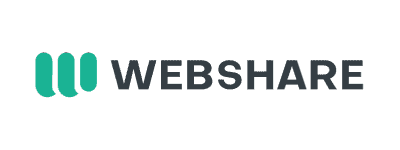
Get 50% off your first purchase.

Datacenter proxies
Not specified

Residential proxies
80M IPs
- Locations: global (residential); 50+ countries (datacenter)
- Support: Monday to Friday (6am-6pm PST) support via live chat and email
- Extras: API, documentation
- ISP Proxies available
- Free trial: 10 proxies for free.
- Pricing starts from:
– Residential: $3.5 for 1 GB
– Datacenter: $26.60 for 20 proxies ($1.33/proxy)
Webshare is strongest on the datacenter side. Its pool covers more than 50 countries, and the infrastructure is impressively stable for large scraping runs. You can rotate on each connection, pick exactly how many IPs you want, set thread limits, and even choose refresh intervals – the service gives you a lot of control for the price.
Residential proxies are available but basic. There is no city targeting, no advanced rotation settings, and their speed lags behind the faster providers. They work for light tasks, but they’re not Webshare’s main selling point.
The dashboard is simple, and the free plan with ten static IPs is a practical way to test before scaling. If your scraping relies mostly on datacenter or shared ISP proxies and you like granular configuration, Webshare fits the bill.
Read the Webshare review for more information and performance tests.
6. DataImpulse
Low-cost rotating proxies with non-expiring traffic.

Residential proxies:
90M IPs

Datacenter proxies:
Unspecified # of IPs
- Locations: 195+ countries
- Rotation: every request, up to 120 mins
- Support: Telegram, email, 24/7 support via chat
- Extras: API for resellers, extensive documentation
- Mobile proxies available
- Free trial: 7 day refund policy
- Pricing starts from:
– Residential: $5 for 1GB
– Datacenter: $5 for 10 GB ($0.5/GB)
DataImpulse is run by the Ukrainian dev house Softoria, which also operates a well known Google scraper, so the team knows its way around large scale data collection. The provider sources its proxies in house and sells them in non expiring packages that are hard to match on price.
The offer itself is straightforward. You get cheap proxies with SOCKS5 and UDP support, ZIP code level targeting, and rotation that can switch on every request or hold sessions for up to two hours. The dashboard lets you see exactly how many IPs are online in every location.
DataImpulse is a good fit if you want to keep costs low without switching to unreliable bargain providers.
For more information and performance tests, read the Dataimpulse review.
7. Rayobyte
Good datacenter proxies for a wide range of customers.
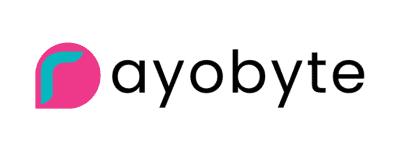

Datacenter proxies
300K

Residential proxies
40M
- Locations: 163+ countries (residential); 29 countries (datacenter)
- Rotation: every request, 1-24 hours
- Support: via email, ticketing system, or live chat
- Extras: API, proxy tester, extensive documentation
- Mobile & ISP proxies available
- Free trial: 2-day free trial available
- Pricing starts from:
– Residential: $2.00 for 1 GB
– Datacenter: from $2.50 for 5 IPs (static); $0.28/GB (rotating)
Rayobyte built its name on datacenter proxies, and that is still where it feels the most at home. You can go with a rotating setup, and US targeting even drills down to states and cities.
Its residential network spans more than 150 countries with city level targeting and flexible rotation, and the pool proved larger and more stable than expected in testing. Though if you value speed, it might not be the best choice: Rayobyte’s response times lag behind the top competitors, sometimes by a wide margin.
Pricing is friendly on rotating plans thanks to pay as you go traffic that never expires.
8. Infatica
Scraping proxies with unlimited threads.
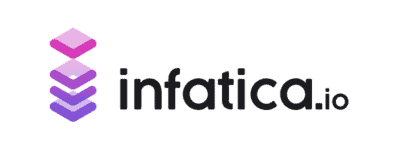
Use the code proxyway2024 to get 20% off your first purchase.

Datacenter proxies
500K IPs

Residential proxies
15M IPs
- Locations: global (residential); 40 (datacenter)
- Rotation: every request, 5-60 mins, sticky sessions
- Support: 24/7 via live chat
- Extras: Proxy checker
- ISP & Mobile Proxies available
- Free trial: 7 days trial for $4.00 (residential) & $3.00 (datacenter) available
- Pricing starts from:
– Residential: $4 for 1 GB (pay as you go)
– Datacenter: $0.6 for 1 GB (pay as you go)
Infatica is a mid-market provider with a straightforward residential proxy service. The proxy pool is humble in numbers yet spans more than 150 countries, supports city level targeting, and gives you flexible rotation ranging from every request to long sticky sessions. You can also get a pool with IPv6-only residential IPs – an option that few providers offer.
Its datacenter offering follows the same practical approach. You get a rotating pool across many locations at budget friendly rates, which works well for high volume scraping on easier targets.
The platform is simple to manage, unlimited threads are included, and support is available day and night. If you want reliable scraping performance without extra complications, Infatica is an easy fit.
9. IPRoyal
Flexible proxies with proper user experience.
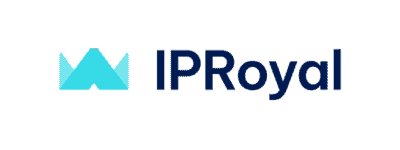
Use coupon PROXYWAY30 to get a 30% discount.

Datacenter proxies
Not specified

Residential proxies
32M IPs
- Locations: global (residential); 64 (datacenter)
- Rotation: every request, 1sec-24 hours.
- Support: 24/7 via live chat, Messenger, Telegram, and Discord.
- Extras: Proxy checker, Browser extension
- ISP & Mobile proxies available
- Free trial: not available.
- Pricing starts from:
– Residential: $3.5 for 1 GB
– Datacenter: $1.57/proxy (for 30 days)
IPRoyal is a solid pick for smaller scraping workloads. Its rotating residential proxies are the main draw, offering flexible rotation, city-level targeting, and pay-as-you-go traffic that never expires. The pool is on the smaller side and can feel a bit more worn than what you get from larger providers, but it handles routine tasks and warmups reliably enough.
The datacenter side gives you cheap dedicated IPs across dozens of locations, which is useful when you need stable, predictable connections without spending much. ISP and mobile options are also available if your workflow requires their occasional implementation.
The platform itself is easy to navigate, customer support is responsive, and the browser extension is a nice convenience for manual IP switching. Overall, IPRoyal fits teams that want affordable, uncomplicated proxies, and do not need top tier scale or freshness.
Providers We Haven't Tested Recently
10. Bright Data
Versatile proxies for any needs.
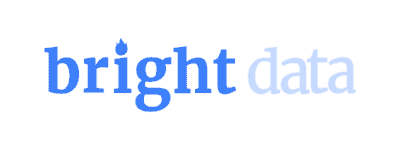
Add up to $500 to your account and get double the amount.

Datacenter proxies
1.3M IPs

Residential proxies
150M IPs
- Locations: global (residential, mobile); 98+ countries (datacenter)
- Support: 24/7 via live chat, tickets, dedicated account manager
- Extras: API, browser extension, Proxy Manager, extensive documentation
- ISP & Mobile proxies available.
- Free trial: 7-day free trial for businesses.
- Pricing starts from:
– Residential: $4.00 for 1 GB
– Datacenter: $14 for 10 IPs ($1.4/IP)
Bright Data sits at the top end of the proxy market, and its scale shows. The residential and datacenter networks are huge, feature rich, and cover practically every country you might need for scraping. You get city-level targeting, multiple rotation modes, and tooling that lets you shape requests exactly the way your workflow requires.
Bright Data’s performance is consistently strong. Success rates, uptime, and response times all land near the top of the charts, which makes Bright Data a safe bet for demanding or high-concurrency scraping tasks.
The ecosystem around the proxies is another advantage. The open source Proxy Manager, API options, and browser tools give you fine grained control without having to build everything yourself.
The tradeoffs are familiar. Bright Data is one of the pricier providers, and the service can feel overwhelming if you are new to scraping or do not need this level of control.

Frequently Asked Questions About Web Scraping Proxies
Datacenter proxies are okay if you know what you’re doing or don’t need data from many locations. Residential proxies scale better, support more locales, are harder to detect and easier to manage. You can try out both and see what works for you.
